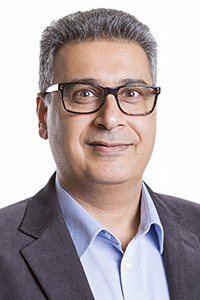Sorting of household waste
Start date: 2015-08-01
End date: 2019-03-31
There are several different waste sorting systems in Sweden. In Borås we separate waste into several fractions. Fractions such as newsprint and packaging are collected in buildings where citizens need to walk or drive to recycling stations to sort their waste. Other fractions, such as hazardous, electronic and garden waste, should be sorted at recycling centres. In addition, food and combustible wastes need to be sorted in black bags (intended for food waste) and white bags (intended for combustible waste) in the home.
This research focuses on how well actors, such as supermarkets and citizens, sort their waste and how we can motivate better sorting and generation of less waste. The main focus is on developing methods to investigate interventions for source separation systems and to evaluate the impacts of these interventions on recycling behaviour. Our studies have shown, for example, that decreasing the distance between households and recycling stations resulted in improved sorting of recyclables such as newsprint and packaging by 30%. In addition, information on how to correctly sort the waste must be easy to understand and must be visible when sorting. In our study the availability of this information decreased the miss-sorted fraction by 70%. We have also shown that incorrect sorting of household waste can lead to a community cost. This cost was estimated to be 13 million SEK per year for a city like Borås.
More information can be found in a film where Kamran Rousta – PhD student in this project – presented his research in just 4 minutes and came second in the whole of Sweden in Research Grand Prix!
This work is being extended develop knowledge on how people moving to Sweden from abroad experience waste sorting from an occupational science perspective. Occupational Science is concerned with human adaptation and patterns of “doing” and engaging in occupations of all sorts. This perspective in this multidisciplinary research project has the potential to benefit people moving to Sweden, as well as municipalities to whom incorrectly sorted waste is very costly. Moreover, knowledge on how waste sorting is experienced and what sort of interventions can help those that are new to a particular recycling scheme or the concept of recycling, might be useful with respect to ongoing efforts around the globe to build recycling schemes or to make existing ones more sustainable.



